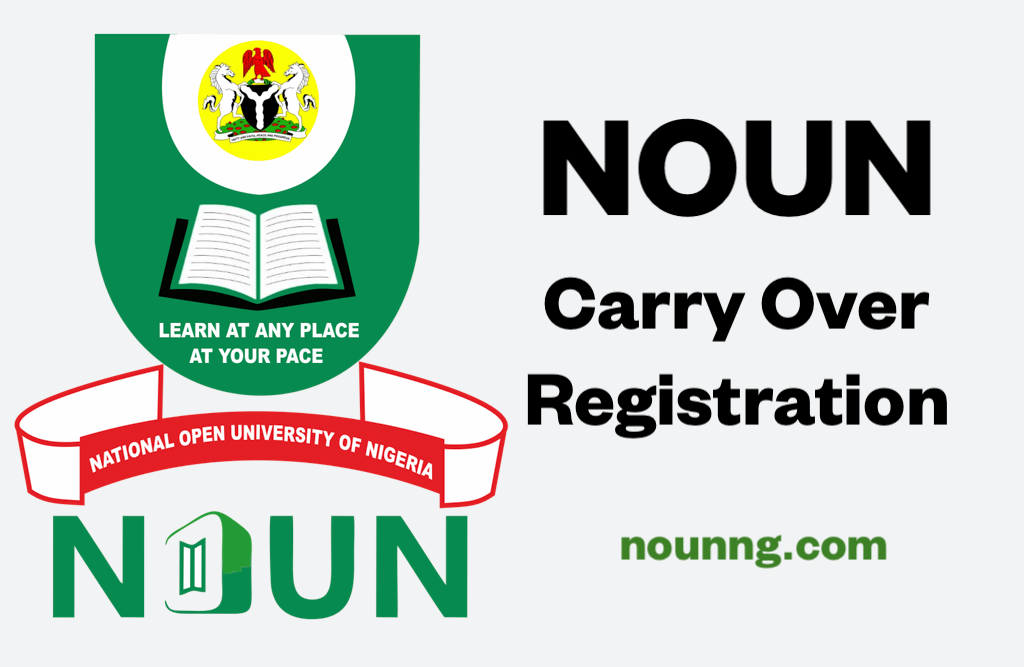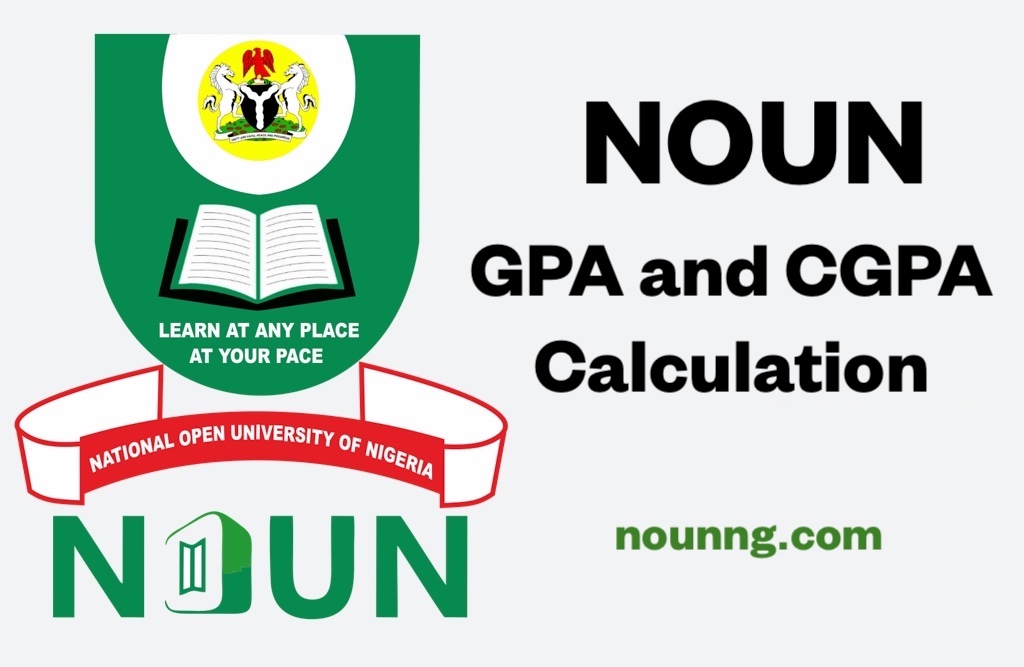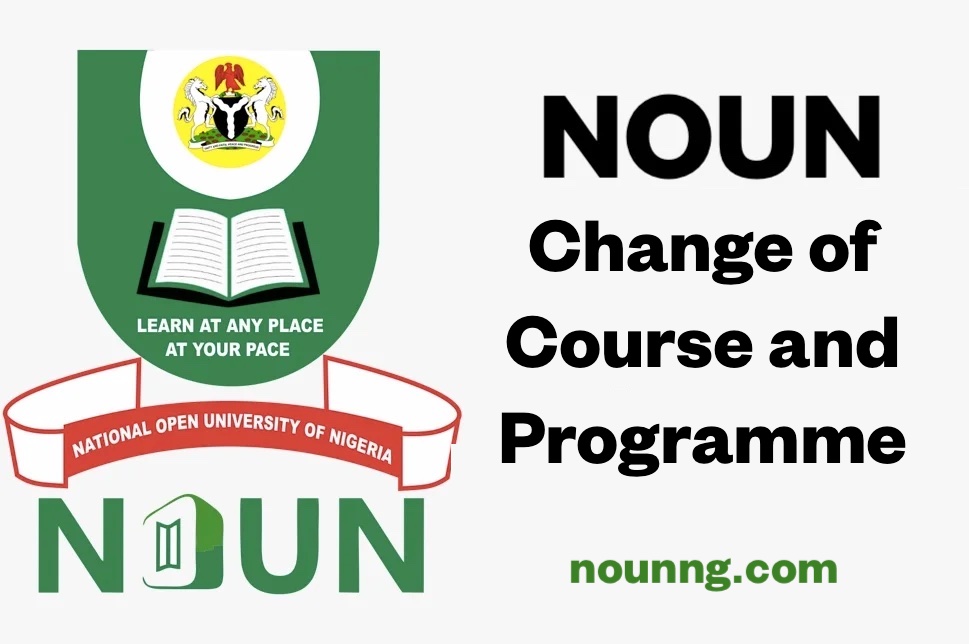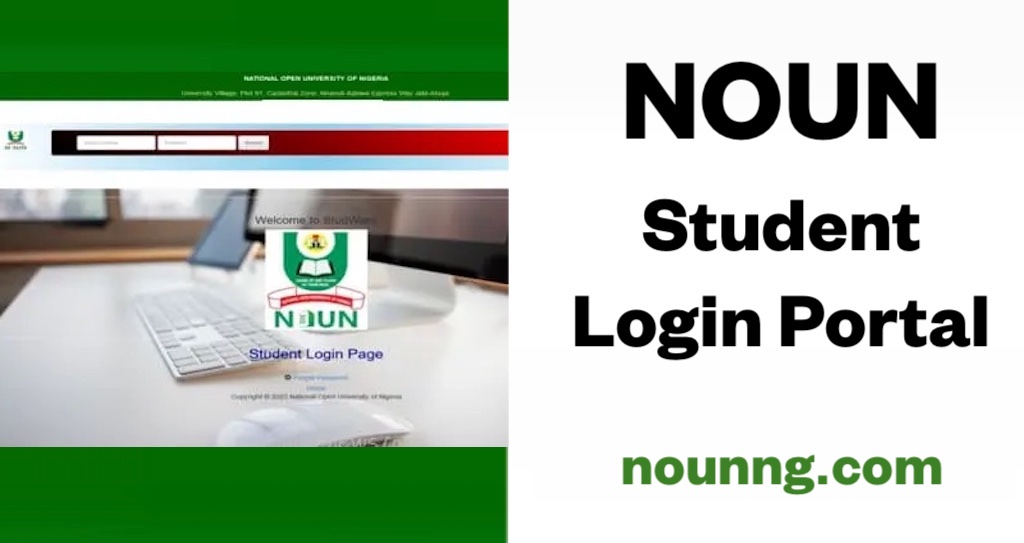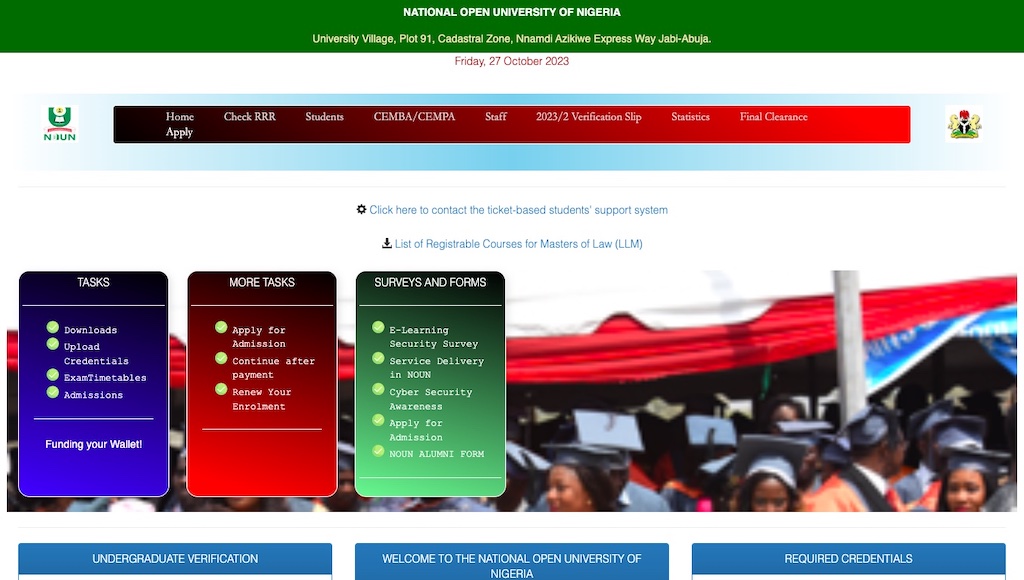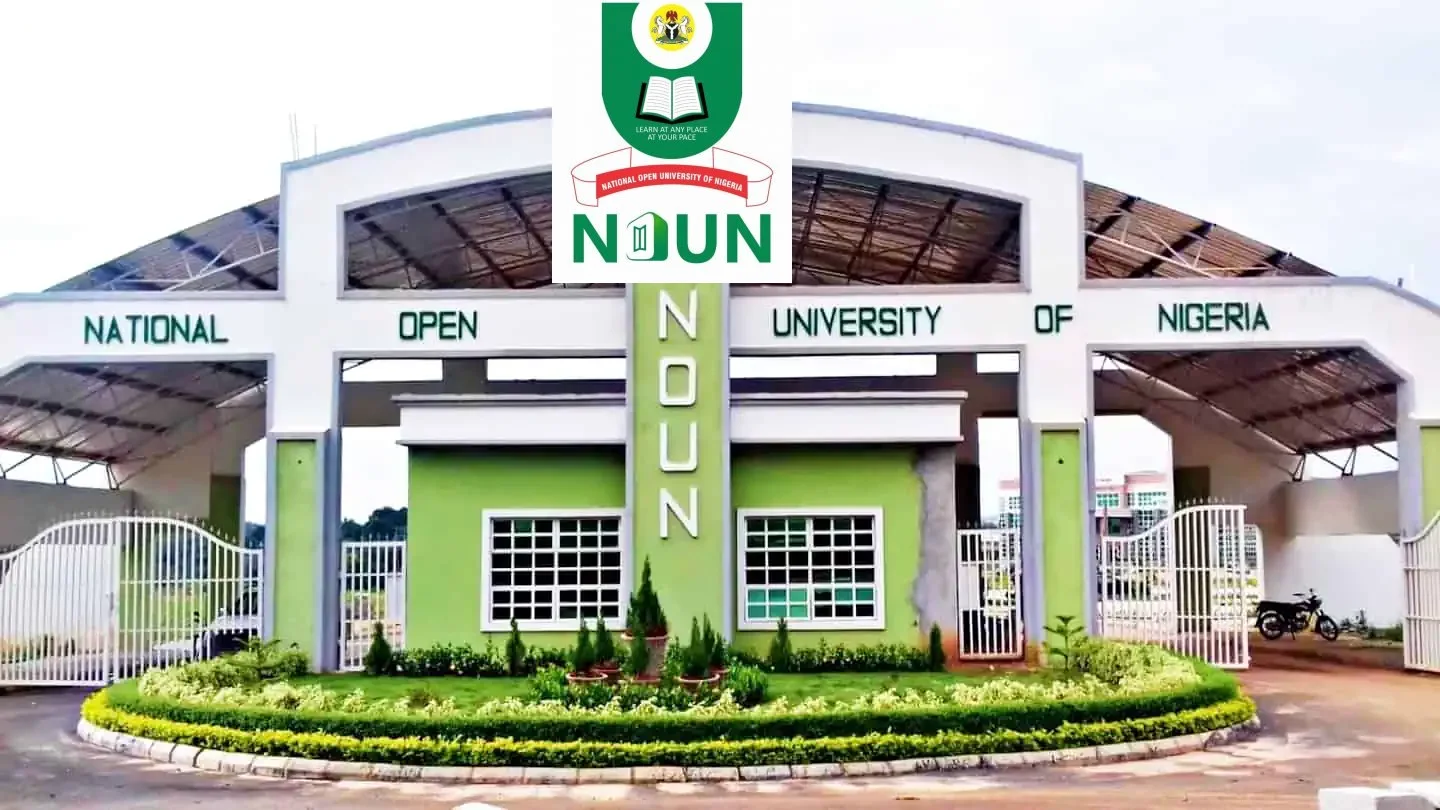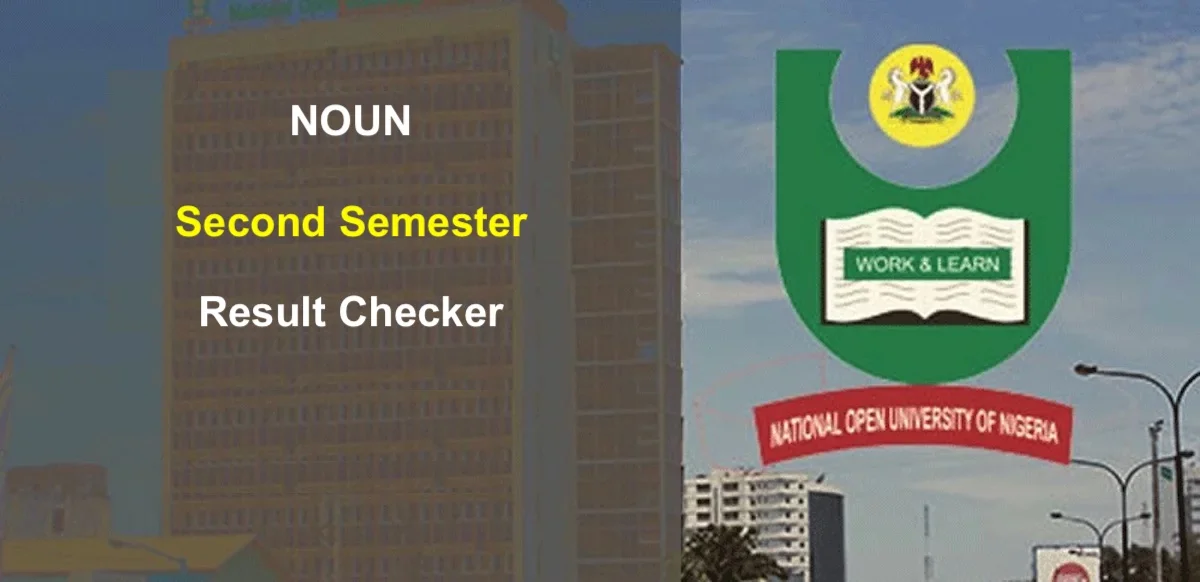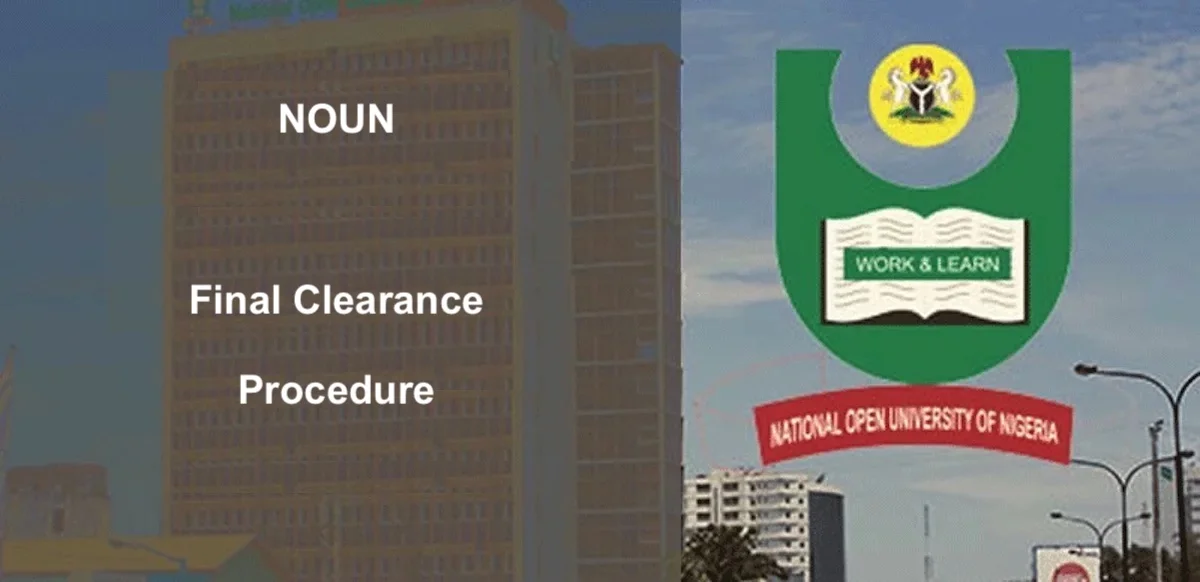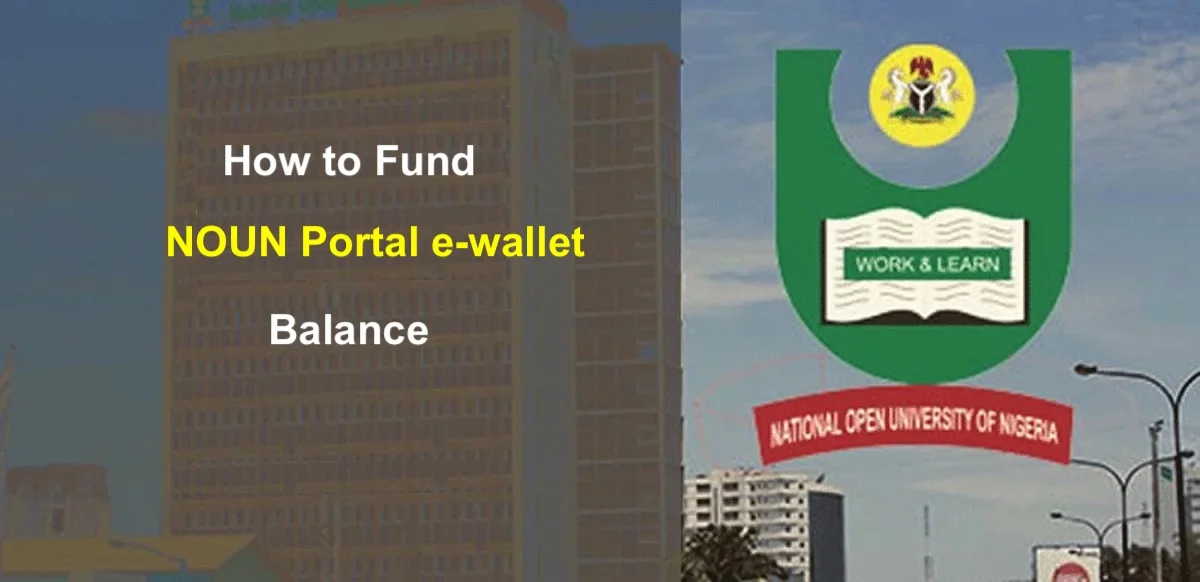This article will guide you on how to write a NOUN SIWES report. The Industrial Training/Siwes logbook report is essential to the programme.
The SIWES programme is, therefore, not deemed to have been passed through by the student, by the NOUN School Board of Studies and the University of Senate until a satisfactory report has been written. Therefore, the guidelines for writing the SIWES Reports are set out below, and the student should write the report stressing what they did during their attachment.
Read also: List of NOUN ACETEL Programmes / Courses.
How to Write NOUN SIWES Report.
Recommended Outline.
The plan of the report is the student’s responsibility. To streamline all reports, the following outline is to be followed by every student.
2.1 Title
2.2 Name of Student (Surname first)
2.2.1 Matriculation Number
2.2.2 Course and Year (e.g. Bus. Edu. 3)
2.3 Location & Firm of Training
2.4 Summary or Abstracts of the report (about ¾ – 1 page) It should contain all the essentials inside the information)
2.5 Acknowledgement
2.5.1 Introduction: The student should state what they will write about. He should briefly outline the organisational structure of the company.
Related: NOUN Change of Course Procedure for All Students.
2.6 Main Body of the Report: This is the essential part of the report, and the student must show their innovations. The plan and order sequence should include mainly:
a. The skills and practices the student required
b. The operation and maintenance training received
c. The specific work done must be given adequate coverage
d. Any design, calculations, and analysis must be carefully but briefly recorded.
e. Supervision and any leadership role played in a given project or assignment (if any) must be briefly reported to leave no one in doubt regarding the student’s involvement.
f. Sketches, diagrams, graphs and drawings (if any) must have titles designated as Fig. 1, 2 etc., and each must be referred to at least once in the report.
g. Experimental tests and results tables must also be given adequate coverage. Each table should be given a title in sequential order, as Table 1,2,3,4,5,6 etc., with related tags, and must be referred to at least once in the text.
Read also: NOUN Exclusion Letter Registration and Printing Procedure.
2.7 Conclusion: Here, the student should state again what he has achieved, contributed and learnt during this attachment.
2.8 Acknowledgements: This section may note all those who have helped the student succeed in his training.
2.9 References: A list of references may be necessary. It should be listed in the order the connections are referred to in the report and also listed alphabetically.
2.10 Appendices (if any): A detailed description of the working principles of most apparatus, equipment or devices may be reserved for the appendix section. Only in exceptional cases when the apparatus is, the main focus of training should a detailed description form part of the main report.
Institution and Requirements.
The Institutions
The institutions are to:
Establish SIWES Directorate with a separate account, adequately staffed and funded to ensure effective scheme operation. The unit must meet the following minimum requirements:
A. MINIMUM PERSONNEL REQUIREMENTS
- For a full-time Head/Director of SIWES, the rank should not be less than that of a Reader in a related discipline.
- An Administrative Office (to assist the Head)
- At least four full-time Industrial Coordinators to operate the scheme at the Institutional level
- A Secretary/Typist/Data Entry Clerk
- A Driver
- A Clerk
B. MINIMUM MATERIAL REQUIREMENTS
- Adequate office space and well furnished
- A personal computer
- A photocopying machine
- A separate SIWES account
- A functional car
C. The Institutions will also do the following:
- Appoint SIWES Coordinator in Schools;
- Prepare and submit Master and Placement lists to the respective coordinating agency and ITF
- Place students on attachment with employers;
- Organise orientation programmes for students to prepare them for industrial training;
- Supervise students on wings and sign their logbooks. A minimum of three visits should be made to the
- students by the institution’s supervisors during the period of attachment;
- Work out the industrial tailor-made programme with the employers-based supervisor on the National Training Guidelines for each course;
- Submit completed ITF Form 8 to the ITF;
- Submit comprehensive reports on the scheme to the ITF after the programme.
THE EMPLOYERS/INDUSTRY
- Accept students and assign them to relevant on-the-job training;
- Provide tailor-made training programmes for the students;
- Attach experienced staff to students for practical training and Supervision on a ratio of 1:10 (staff: students);
- Control and discipline students like a permanent staff;
- Provide medical care for students within the limit of employers’ conditions of service;
- Permit representatives of ITF and Institution based supervisors to visit the students on attachment and
- Grade students in the assessment Form and the ITF Form.
THE STUDENTS
- To attend the institution’s SIWES orientation programme before going on industrial attachment;
- Comply with the employer’s rules and regulations;
- Keep proper records of training activities and other assignments in the logbook;
- Arrange their accommodation during the period of attachment;
- Submit Log Books, Reports and other documents related to SIWES as required by their institution at the end of the training period;
- Submit to ITF through their institution Evaluation Form (ITF Form 8) completed by the students, the employer, and the institution;
- Avoid changing the place of attachment except in exceptional circumstances and with the permission of your Centre Director and the SIWES Directorate.
COMPULSORY REQUIREMENTS FOR PARTICIPATION
- Master List
- Placement List
- Summary Sheet
ORIENTATION PROGRAMMES
All students accepted for SIWESS must be given an orientation on SIWES by their institutions, during which ITF staff must be in attendance.
SUPERVISION OF STUDENTS
Students on attachment are to be supervised by the professional ITF staff and the institution’s supervisors (comprising staff of Schools and the Directorate).
Read also: NOUN School Fees: Breakdown and Payment Options.
NOUN Board of Study of SIWES Directorate.
Professor Stanely N. Ngoa Chairman
Coordinators of the Faculties:
- Mr Samuel Awolumate (Agricultural Sciences) Member
- Mrs SimbiatAdewuyiwa (Social Science) Member
- Mrs IhuomaEfughi (Management Sciences) Member
- John Ejembi (Education) Member
- Adams Abiodun (Sciences) Member
Mr Michael Kolawole Falolu (Bursar’s Reps.) Member
Liaison Officers In Lagos:
- Ramoni Kolawole Member
- Linus Onime Member
Senior Staff in the Directorate of SIWES:
- Joseph Tyokagher Member
- Moses Adegboyega Member
- Mbama Ukamaka (Mrs.) Member
- Iduma Patrick Member
- Aliyu A. Hamza Secretary
What is the Students’ I.T/SIWES Scheme?
NOUN STUDENTS INDUSTRIAL WORK EXPERIENCE SCHEME (SIWES)
The Students Industrial Work Experience Scheme (SIWES) is a new Directorate under the Vice-Chancellor’s Office. It was established on 20th April 2012
The Students Industrial Work Experience Scheme (SIWES) is a skills training programme designed to expose and prepare students of universities and other tertiary institutions for the Industrial Work situation they are likely to meet after graduation. It is also a planned and structured programme based on stated and specific career objectives geared towards developing participants’ occupational competencies (Mafe, 2009). Consequently, the SIWES programme is a compulsory graduation requirement for all Nigerian university students offering specific courses.
The Students Industrial Work Experience Scheme (SIWES), is the accepted training programme, which is part of the approved Minimum Academic Standard in the various degree programmes for all Nigerian Universities. The scheme aims to bridge the gap between the theory and practice of Sciences, Agriculture, Medical Sciences (including Nursing), Engineering and Technology, Management, Information and Communication Technology and other professional educational programmes in Nigerian tertiary institutions. It aims to expose students to machines and equipment, professional work methods and ways of safeguarding the work areas and workers in industries, offices, laboratories, hospitals and other organizations.
Before establishing the Scheme, industrialists and other employers of labour felt concerned that graduates of Nigeria Universities were deficient in practical background studies preparatory for employment in Industries and other organizations. The employers thus concluded that the theoretical education received in our higher institutions was not responsive to the needs of the employers of labour. Consequently, the rationale for initiating and designing the scheme by the Industrial Training Funds (ITF) in 1973.
The scheme is a tripartite programme involving the students, the universities and the employers of labour. The Federal Government funds it and is jointly coordinated by the Industrial Training Fund (ITF) and the National Universities Commission (NUC).
- To provide an avenue for students in Nigerian universities to acquire industrial skills and experience during their course of study;
- To prepare students for the work situation they are likely to meet after graduation;
- To expose the students to work methods and techniques in handling equipment and machinery that may not be available in their universities;
- To allow the transition phase from school to the world of working environment easier and facilitate students’ contact for later job placements;
- To allow students to apply their theoretical knowledge in actual work situations, bridging the gap between theory and practice.
Related: How to Write & Pass NOUN Pen-On-Paper (POP) Exam.
FAQs.
What is SIWES?
The Students Industrial Work Experience Scheme (SIWES) is a skills training programme designed to expose and prepare students of universities and other tertiary institutions for the Industrial Work situation they are likely to meet after graduation.
Who is eligible for the NOUN SIWES Program?
Undergraduate students whose disciplines require that they register SIWES as a course and go for attachments before they can graduate
Do I need to register for NOUN SIWES as a course before embarking on the SIWES attachment?
Yes, you must register on the student portal before updating your records on the SIWES portal.
When am I supposed to go for the SIWES attachment?
As soon as you register SIWES as a course on your portal
What is the duration for NOUN SIWES?
SIWES is for six months (24 weeks); as the case may be, some courses have SIWES 1&2, each is for three months which still completes six months
What about the B. Agric options for NOUN SIWES?
This set of students will carry out their SIWES attachment for 52 weekends.
How many courses do B.Agric Science students have SIWES?
They have 18 courses, but 16 are to register, and two are electives depending on the option of the B. Agric course you are studying.
How do I access the NOUN SIWES Portal?
Go to http://www.mylearningspace.nou.edu.ng. You must have registered SIWES as a course on your students’ portal and used your email address during course registration. You can also click on the link on the University’s website.
What do I do if I cannot access the NOUN SIWES Portal?
If you have registered SIWES as a course, click reset password, and a link will be sent to your email. (Valid email address).
How do I collect my NOUN logbook?
You have to pay a compulsory fee of N1000 only using the Remita platform www.remita.net at any bank branch of the National Open University of Nigeria. Take the bank teller to your Study Centre SIWES desk officer for your logbook collection.
What is the essence of SIWES?
It is bridging the gap between theories and practical. It is also a core requirement for some courses.
Can I go for SIWES attachment in any organization?
Yes, but it must be an organization that engages in the core services related to your course of study. Note that the essence of SIWES is to enable students benefits from workplace experience in their course of study.
What if the organization does not engage in services related to my course of study?
No, if you do your SIWES there, it may be cancelled.

